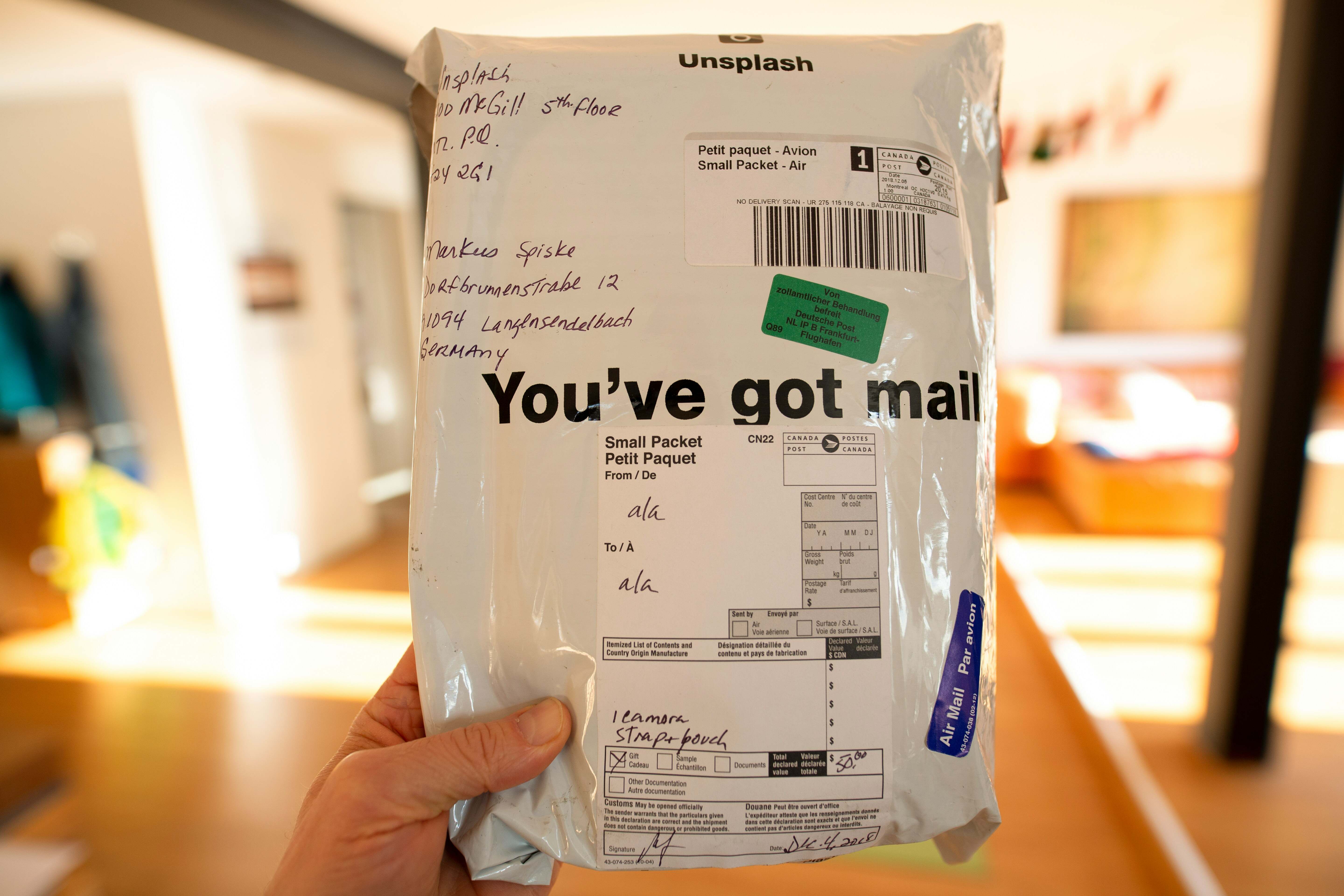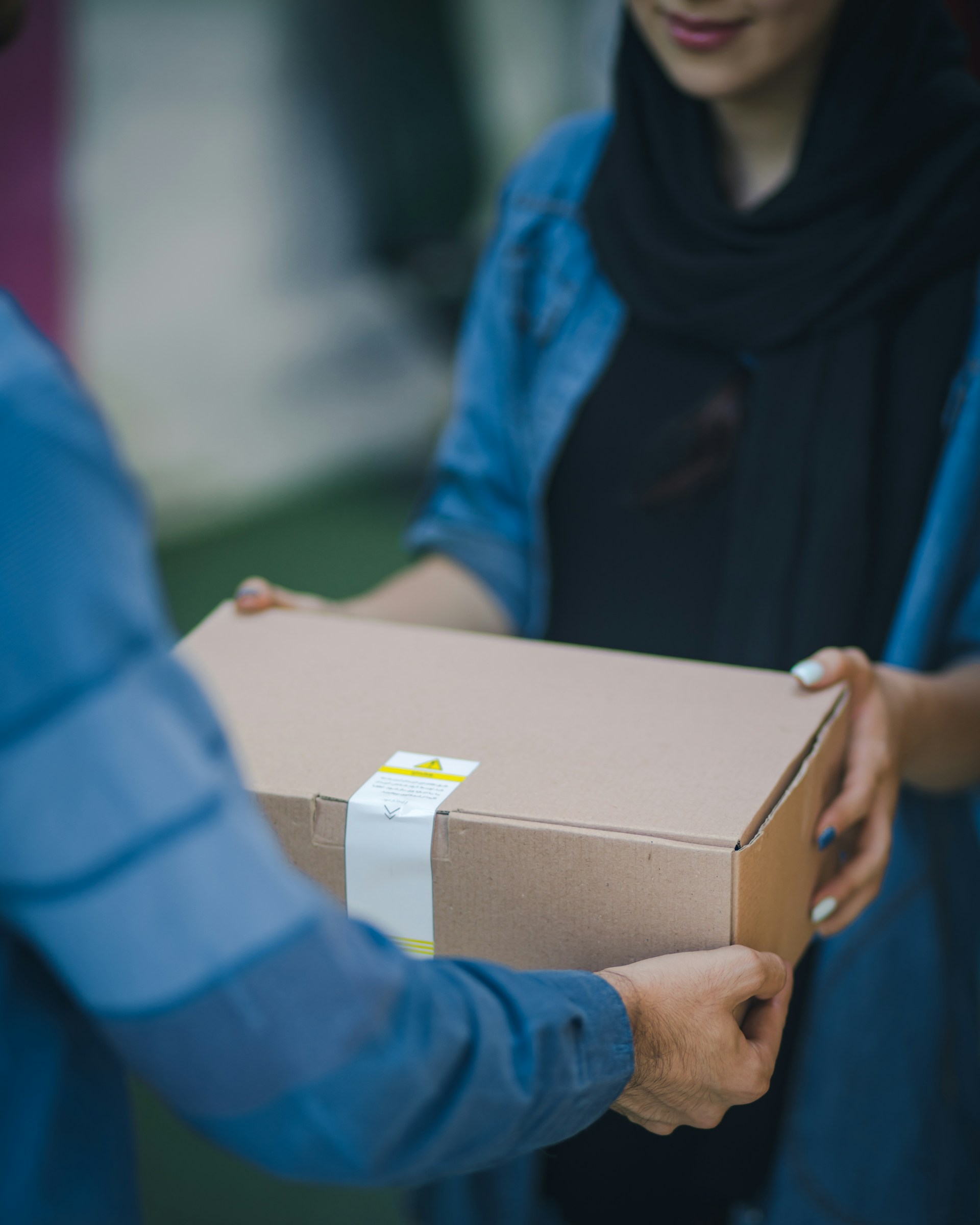 3PL vs 4PL: Understanding the Key Differences and Benefits
3PL vs 4PL: Understanding the Key Differences and Benefits
Since the rise of e-commerce, businesses have become incredibly diverse—varying in team size...
Read More
When launching your business, you generally consider aspects like orders, customers, packagi...

When launching your business, you generally consider aspects like orders, customers, packaging, and other elements linked to achieving business success.
Recently, the order fulfilment process has been increasingly linked to adverse effects on sustainability due to the vast number of resources it consumes daily.
Consumer buying habits are changing to reflect this, purchasing from businesses actively making their order fulfilment process as sustainable as possible. With increasing environmental awareness among consumers, it becomes crucial for companies to embrace eco-friendly practices. In this context, exploring strategies to enhance the order fulfilment process's sustainability is a step towards environmental responsibility and a strategic move to meet evolving consumer expectations.
In our previous discussions, we talked about the environmental impact of e-commerce businesses. In this guide, we will explore this concept in depth, focusing on how the order fulfilment process, from packaging materials to logistics, can work to reduce this environmental impact.
According to a recent study, 3.6 billion parcels were sent between 2022/23. The online activity age means the demand for logistics and order fulfilment is soaring. However, the environmental cost of so many shipments is a growing concern. The volume of packages transported globally contributes to carbon emissions, excess packaging waste, and resource strain.
By focusing on sustainability in how they handle deliveries and orders, businesses can help tackle environmental issues. Choosing eco-friendly practices doesn't just lessen the environmental impact; it also encourages responsible use of resources. This approach goes hand in hand with the worldwide push for consumers to make more environmentally conscious choices.
Choosing sustainable logistics and eCommerce fulfilment doesn't just benefit the environment but also shapes consumer behaviour. A recent study on consumer habits found that 73% are willing to change their consumption patterns, including brand loyalty, to reduce their environmental impact. This growing awareness reflects a shift in brand identity expectations that align with consumer values.
Embracing sustainability is increasingly becoming essential for success in today's market. Brands dedicated to sustainability enjoy a remarkable 46% higher growth rate than businesses that overlook this growing subject. Aligning your eCommerce brand with sustainable practices meets the expectations of consumers and positions your company for growth and success in the market.
Around 18 billion pounds of plastic waste is discovered annually in our rivers, oceans, and wildlife habitats. Over 40% of this plastic is due to packaging that can’t be reused or recycled. Striking a balance between meeting the increasing demand for customer orders and reducing the volume of non-recyclable packaging waste poses an ongoing challenge for your eCommerce business.
Ensuring your company's ongoing success and growth while keeping in line with current and future sustainability rules demands a well-thought-out strategy. Striking the right balance involves meeting customer needs while reducing the environmental impact of packaging waste. Achieving these goals requires a proactive and thorough approach, ensuring your business thrives while staying responsible and environmentally conscious among changing expectations and regulations.
This part of our guide provides tips to ensure the packaging aspect of your eCommerce fulfilment process is as eco-friendly as possible.
The most straightforward place to begin incorporating sustainable practices into your offer fulfilment process is by looking at the materials you use to dispatch your items to customers.
Below, we have highlighted some sustainable packaging materials you can utilise in your order fulfilment process.
Changing your current packing materials to one of these sustainable options assists in reducing emissions of the eCommerce fulfilment process as a whole. It also appeals to your sustainably minded customer base. To increase your impact, introduce reusable packaging options to reduce the amount of single-use materials.
Encourage customers to return packaging for reuse or recycling.
Your design choices reflect your eCommerce business, meaning you want to ensure your designs express simplicity and functionality. As the saying goes, "less is more" in most cases. This philosophy extends to your order fulfilment process, particularly in packaging strategies. Limiting packaging where possible goes hand-in-hand with this minimalist approach. Not only does it contribute to the sustainability of your order fulfilment process by reducing environmental impact, but it also saves valuable resources and helps control costs associated with materials.
In avoiding the 'Russian Doll' effect of using large boxes to transport small items, you not only improve the efficiency of your logistics but also minimise unnecessary waste. This thoughtful approach aligns with the growing trend of environmental consciousness among consumers, showcasing your commitment to both efficiency and sustainability. By making deliberate and eco-friendly design choices, you enhance your brand image and participate in the broader movement towards a more responsible and environmentally friendly eCommerce business.
Choosing eco-friendly packaging from local sources, as opposed to national or multinational ones, can improve the overall sustainability of your order fulfilment by reducing emissions from lengthy supply chains. Whenever possible, try to source products and materials locally to lessen the environmental impact of long-distance transportation. Supporting local suppliers and manufacturers contributes to your sustainability efforts and boosts local economies, providing an additional benefit.
In addition to local suppliers, you can also minimise long supply chain emissions by visiting:
Now that you have begun thinking about simple ways to add sustainable practices to the order fulfilment process, let's discuss how your product storage, inventory management, and shipping can contribute to this.
Whether you have a small storage space or a big warehouse where you keep your inventory matters. It's not just about having enough room; it's also about choosing a sustainable environment.
Think about it like this: imagine a storage space that's energy-efficient and well-ventilated. This isn't just good for the planet but also for the people working there. By making choices that support a healthy work environment, you're not just storing products – you're doing it in a way that aligns with responsible and sustainable business practices.
If you are a more significant eCommerce business looking to make your order fulfilment process more sustainable, consider the following:
Investing in an inventory management system that provides up-to-date analytics can be costly, but it can assist your eCommerce fulfilment in various ways, including making the process more sustainable. Organising your business' data isn't what traditionally comes to mind when thinking about sustainability, but having a well-structured system can contribute to the following:
No matter how hard your business pushes sustainability within the order fulfilment process, your reach will be limited if your shipping provider does not echo this. In 2021, 36% of all emissions recorded were directly due to the transportation sector. With the increase in customer demand, this is only increasing.
Some shipping providers are more sustainability-focused than others, offering sustainable shipping options, order consolidation discounts to reduce journeys and environmental impact reduction goals.
It is essential to research the sustainable practices of each delivery company to determine which offers the most appealing ways to reduce the environmental impact of order fulfilment. For example, many parcel services offer your customers delivery to parcel shops, preventing multiple short journeys.

For small or medium-sized businesses (SMBs), implementing sustainable changes in-house can pose unique challenges despite the want for sustainability. This is usually due to limited resources, financial constraints, and organisational scale. Some of the challenges that e-commerce businesses face when implementing sustainable practices include:
Companies, particularly e-commerce retailers, use the services of fulfilment partners to assist with various aspects of logistics, such as receiving shipments, warehouse storage, order picking and packing, and shipping. In an annual study on the activities of 3PLs, 83% of third-party logistics companies said that ESG and sustainable practices are included in their organisational activities.
Choosing a sustainable fulfilment partner can influence a company's carbon footprint significantly. These eco-friendly partners use their know-how, networks, and tech tools to cut down on pollution and waste. Through the incorporation of technology-driven enhancements, these sustainable fulfilment partners enhance operational efficiency, contributing to a reduction in the overall environmental impact for both themselves and the businesses that they support.
But how exactly can a 3PL provide your businesses with eco-friendly solutions to the order fulfilment process?
You want your order fulfilment process to be more sustainable, but you may need help knowing where to begin this complex process as your eCommerce business grows. How do you implement sustainable practices while scaling, increasing shipments, and managing costs?
An experienced 3PL partner will know how to incorporate sustainable practices with businesses of all sizes. They organise every aspect of the process, from sustainable transportation and warehouse operations to inventory management. They can provide you with particular expertise around sustainability.
A 3PL’s understanding of the environmental impact of logistics and how to seamlessly integrate sustainable measures into a business’s order fulfilment strategy can help you to navigate any regulations related to sustainable practices and suggest personalised, sustainable initiatives.
Third-party logistics companies actively promote their own sustainable practices while assisting businesses in making their order fulfilment processes eco-friendly. When you partner with a 3PL, their established commitment to sustainability seamlessly integrates with your operations, replacing traditional practices with environmentally conscious solutions.
A 3PL invested in sustainability will participate in:
Collaborating with a reputable 3PL dedicated to sustainable order fulfilment practices contributes to a positive brand reputation. It demonstrates your commitment to ensuring environmentally responsible operations. By outsourcing your eCommerce fulfilment to a dedicated fulfilment centre, you and your 3PL partner can work together seamlessly to implement and uphold these sustainable practices.
This collaborative effort ensures that as your business expands, these eco-friendly measures grow with you, allowing your commitment to sustainability to remain a consistent and core part of your brand identity. Through this partnership, the positive impact of your sustainable practices is sustained and scalable, aligning with your business growth and reinforcing your brand's dedication to environmental responsibility.
3PL fulfilment centres typically provide inventory management software, offering real-time product movement and availability insights. By analysing statistics and reports generated from customer buying habits and sales data, this software helps you understand demand patterns and optimise stock levels.
Using predictive analytics enables proactive decision-making, reducing overstocking and minimising excess inventory. This streamlines operations and contributes to sustainability by promoting efficient resource usage and waste reduction.
A 3PL, brings small business orders together, helping to cut down on shipping emissions associated with frequent small deliveries. The 3PL can predict its clients' needs by monitoring real-time changes. They smartly group orders with the same chosen shipping providers, reducing the number of deliveries to just a few packages.
Combining and shipping packages enhances delivery operations, reduces fuel expenses, and reduces the overall number of vehicles on the road. This results in decreased greenhouse gas emissions and a more effective use of resources. This not only streamlines the process but also contributes to a more eco-friendly approach to shipping.
As businesses strive for success, the increasing focus on sustainable practices in order fulfilment has become crucial. The demand for eco-friendly approaches stems from changing consumer habits, urging companies to adopt environmentally conscious strategies. Given the soaring number of shipments globally, the environmental impact of the order fulfilment process, from packaging to logistics, is a growing concern.
Perfecting green packing, optimising inventory management, and implementing sustainable shipping habits are all integral steps toward reducing the environmental impact of order fulfilment. Local sourcing and collaboration with a 3PL committed to sustainable practices offer additional avenues for businesses to impact positively.
Sustainability in order fulfilment is not just an initiative; it's a continuous process. It involves a strategic approach that evolves with the growth of your business. As we navigate this journey towards sustainable practices, we ensure our businesses thrive and contribute to a greener, more responsible future for our planet.
We have discussed how partnering with a 3PL can contribute to sustainable order fulfilment; now, discover how we can assist your business in this process. Our dedicated team are proud to be able to support a wide variety of eCommerce businesses in scaling their operations and meeting customer demand. We aim to help your business thrive throughout the constantly changing business landscape.
Contact us today to see how we can support your eCommerce business.